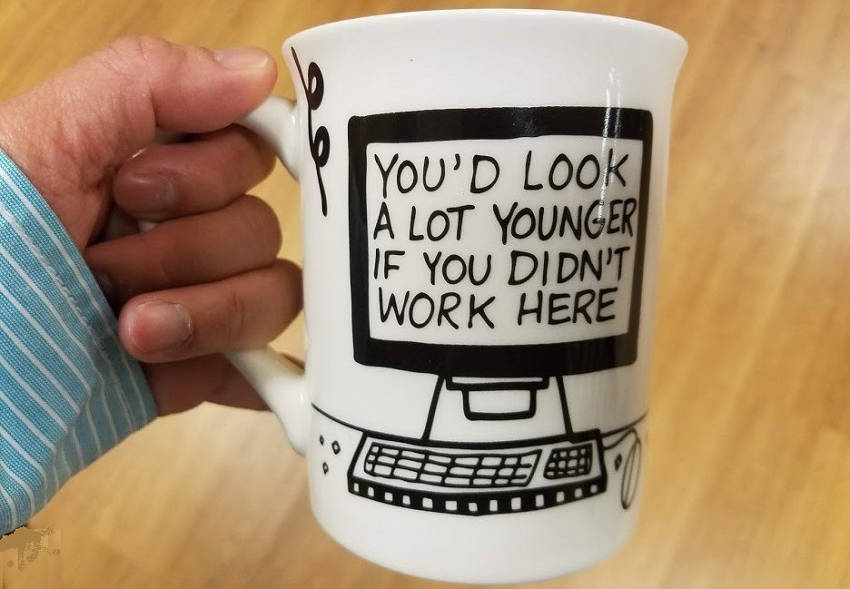The whites carried here in Africa the treasure call faith in God and His Son Jesus dropped it in Uganda and took away the depression of trusting in earthly riches. That is how they get surrounded with emptiness and their life becomes there biggest problem.
Why Would Successful People Commit Suicide?
- By : Menard
- Category : Happiness
- Tags: Anthony Bourdain, Death, Kate Spade, Robin Williams, Suicide

You’ve seen it in the news, especially during an economic depression. A man loses his job, gets into a big pile of debt, runs out of options, and then kills himself. In more tragic cases, he takes his whole family with him. If you think having a job is stressful, try not having a job when you have a family to support.
People in their ’50s and older are especially vulnerable. They’ve worked long enough to tackle the job they are well-suited for but only end up discriminated against during job searches for being too old. And when they can’t bounce back into a career that they’ve defined themselves with, they lose their identity, and consequently, their hope. Losing their standing in society is a big blow to their ego.
Adult suicide is typically correlated to their socio-economic status. The lower the person’s standing in the society (based on income, education, or occupation), the higher the hazard ratio for suicide risk.
So it comes as a surprise when successful people kill themselves.
Robin Williams, Kate Spade, and Anthony Bourdain
Not long ago, it was comedian Robin Williams– loved by tens of millions of people worldwide. Williams pretty much achieved everything an actor could hope to accomplish in television and movies.
- Won Academy Award for Best Actor in a Supporting Role
- Won multiple Grammys, Emmys, Golden Globe awards
- Movies grossed more than $5.1 billion worldwide
Recently it was designer Kate Spade and celebrity chef Anthony Bourdain. Like Williams, both are multi-millionaires and most probably achieved Financial Independence many times over.
Spade launched a very successful New York-based handbag company, which was eventually sold to Neiman Marcus for tens of millions of dollars. She had a husband and a teenaged daughter. Her net worth was estimated to be somewhere between $150 to $200 million.
Bourdain was a globe-trotting chef, a widely-read author, and television personality. He achieved the pinnacle of his success making televised food documentaries, introducing viewers to the strangest street food that he can find in remote corners of the world. His open-mindedness and respect for various cultures have earned him the love and admiration of millions of people worldwide.
What lay beneath the cover of happiness and success, however, was severe depression. And that ultimately led them to commit suicide.
Abuse of drugs could be the common denominator
According to the Hollywood Reporter, Robin Williams’ battle with addiction dated back more than 30 years. He struggled with cocaine and alcohol abuse in the early 80’s. Williams was even with John Belushi during the Saturday Night Live star’s all-night cocaine and heroin binge that led to his fatal overdose.
Spade suffered from depression and anxiety for many years. She was actively seeking help and working closely with her doctors to treat her disease– at least according to sources close to her. Many unconfirmed sources reported that she was “drinking a lot” and a “major alcoholic”. Alcohol is a legal drug that can seriously impair your judgment and intellectual abilities over the long term.
Bourdain readily admitted abusing drugs in the ’80s. In Kitchen Confidential, he wrote, “We were high all the time, sneaking off to the walk-in at every opportunity to ‘conceptualize’”. He wrote further, “Hardly a decision was made without drugs. Pot, quaaludes, cocaine, LSD, psilocybin mushrooms soaked in honey and used to sweeten tea, Seconal, Tuinal, speed, codeine and, increasingly, heroin, which we’d send a Spanish-speaking busboy over to Alphabet City to get. We worked long hours and took considerable pride in our efforts-the drugs, we thought, having little effect on the end-product.”

There’s a complicated relationship between substance abuse and suicide. What experts know is that if someone has an alcohol or drug problem, they are more likely to have suicidal thoughts. In the above chart, for example, over 35% of people who committed suicide have been tested positive for alcohol or antidepressants.
When people feel unhappy, they’re more likely to turn to substance abuse to feel artificial happiness. They are also more likely to contemplate ending their lives.
Related: What is a Life Well-Lived? (Hint: It’s not about having lots of money)
Money can make you happy, but only up to a certain point
Happiness brought by a sudden windfall of money is temporary. Once your wants have been met, the excitement quickly wanes like flowers under the scorching sun. Money doesn’t really change people. It only makes you more of what you already are. If you’re a sad person, money can only make you a rich sad person.
Williams, Spade, and Bourdain had arguably successfully achieved Financial Independence, but they obviously failed miserably in their individual pursuit of happiness. I can’t help but assume that they failed to find fulfillment in their lives. Otherwise, they would not have killed themselves. Success without fulfillment is worthless.
It only goes to show that Financial Independence is just a means to an end. It should never be our end goal. Rather, you and I should find that one thing that can fulfill us.
Only then can we truly be happy.


